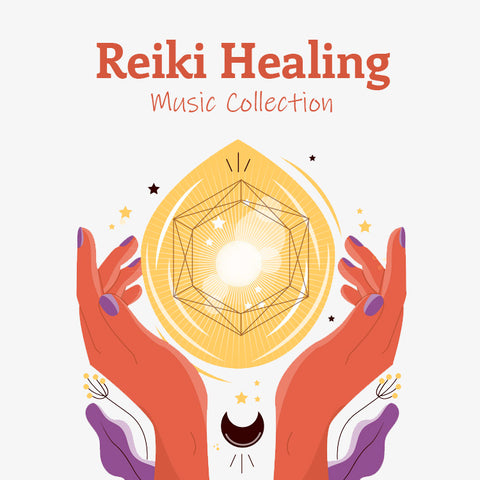In the quest for holistic wellness, people have explored various alternative therapies, one of which is sound healing. It's a practice that dates back centuries, rooted in the belief that sound frequencies can positively impact our physical, emotional, and mental well-being. But amidst the growing interest in this ancient practice, a question persists: Does sound healing really work?

Understanding Sound Healing
Sound healing, also known as sound therapy or vibrational medicine, involves the use of sound waves to promote healing and relaxation. This therapy operates on the principle that everything in the universe, including our bodies, is in a state of vibration. When these vibrations are out of harmony, it can lead to stress, illness, and dis-ease. By introducing harmonious sound frequencies, the body's natural balance can be restored.
Sound Healing Instruments
Various instruments are employed in sound healing practices, each producing distinct frequencies and tones. Some of the most commonly used instruments include:
-
Tibetan Singing Bowls: These are metal bowls that produce resonant sounds when struck or rubbed with a mallet. Each bowl emits a unique frequency believed to correspond to different energy centers in the body.
-
Crystal Singing Bowls: Similar to Tibetan singing bowls, crystal bowls produce pure tones that resonate with specific chakras or energy centers. They are made from quartz crystal and are known for their clear, penetrating sound.
-
Gongs: Gongs produce a wide range of frequencies and are often used in sound baths or meditative sessions. The deep, reverberating tones of a gong are thought to facilitate deep relaxation and release tension.
-
Tuning Forks: Tuning forks are metal instruments that produce a single frequency when struck. They are used to create precise vibrations that can be applied directly to the body or placed near the ears for auditory stimulation.
-
Drums: Drumming has been used for centuries in various cultures for healing and ceremonial purposes. The rhythmic beats of drums are believed to entrain brainwaves, inducing a meditative state and promoting relaxation.
You can learn more about different sound healing instruments and their benefits on our blog post: "Sound Healing Therapy: 7 Musical Instruments You Need".
List of Healing Frequencies Practiced in Sound Healing
Sound healing practitioners often work with specific frequencies believed to have healing properties. These frequencies are said to resonate with different parts of the body and energy centers, promoting balance and well-being. Some of the commonly cited frequencies include:
-
432 Hz: Often referred to as the "universal frequency," 432 Hz is believed to align with the natural harmonics of the universe and promote healing on a cellular level.
-
528 Hz: Known as the "love frequency," 528 Hz is associated with DNA repair and is believed to facilitate transformation and inner healing.
- 639 Hz: This frequency is often referred to as the "relationship frequency" or "connecting frequency." It is believed to promote harmonious interpersonal relationships, enhance communication, and foster feelings of love and compassion.
-
741 Hz: This frequency is said to promote problem-solving, intuition, and self-expression, supporting communication and emotional clarity.
-
852 Hz: Considered the "third eye frequency," 852 Hz is believed to enhance intuition, insight, and spiritual awareness, facilitating deep inner knowing.
- 963 Hz: Known as the "Solfeggio frequency of God," 963 Hz is associated with spiritual awakening, cosmic consciousness, and oneness with the universe. It is believed to facilitate connection to higher realms and promote enlightenment.
For more information on all Healing Frequencies, you can read our blog post: "List of All Healing Frequencies: A Comprehensive Guide"
Does Sound Healing Actually Work?
The efficacy of sound healing is a topic of debate among scientists, healthcare professionals, and alternative therapy practitioners. While anecdotal evidence and personal testimonials abound, scientific research on the effectiveness of sound healing remains limited.
However, before deciding whether to embark on sound healing or not, there are crucial considerations to bear in mind. These considerations can help you navigate the realm of sound healing and make an informed choice about incorporating it into your wellness routine.
Scientific Understanding:
Sound impacts us on a cellular level, influencing brain waves, nerve function, muscle response, and organ function. Specific sounds evoke various neural, physiological, and biochemical reactions within the body, affecting our mood, stress levels, and overall well-being. Sound healing aims to utilize these vibrations to induce relaxation and promote healing.
Effects on Brain Waves:
Research suggests that sound therapy can significantly alter brain wave patterns, shifting from agitated states to calm ones. This alteration leads to a more relaxed, dreamlike state, accompanied by decreased breathing, heart rate, and blood pressure. These physiological changes contribute to improved immune function, reduced stress hormones, and the release of feel-good chemicals in the brain.
Potential Benefits:
Sound healing has been linked to several potential benefits, including anxiety reduction, alleviation of depression symptoms, stress management, fatigue relief, pain management, cognitive enhancement, and overall mental and spiritual well-being. Many individuals find sound baths to be a form of self-care, providing an opportunity to relax, decompress, and connect with the present moment.
Popularity and Accessibility:
Sound healing's popularity is on the rise, fueled by a growing interest in holistic wellness practices worldwide. It offers a non-invasive, drug-free approach to health and well-being, appealing to those seeking alternative therapies. Additionally, the accessibility of sound healing sessions, both in-person and online, contributes to its widespread adoption.
Safety Considerations:
While sound healing is generally considered safe, it's essential to approach it mindfully and take necessary precautions. Consulting with healthcare providers, selecting qualified practitioners, dressing comfortably, and ensuring a safe environment are crucial steps in practicing sound healing safely and effectively.
Pros & Cons of Sound Healing
Pros of Sound Healing:
-
Relaxation: Many people report feeling deeply relaxed and at ease after a sound healing session, which can help reduce stress and promote overall well-being.
-
Pain Management: Some studies suggest that sound therapy may help alleviate pain and discomfort, offering a non-invasive alternative to traditional pain management techniques.
-
Mood Enhancement: Certain frequencies and sounds have been shown to positively influence mood and emotional state, potentially offering support for conditions like anxiety and depression.
Cons of Sound Healing:
-
Lack of Scientific Evidence: The biggest challenge facing sound healing is the lack of robust scientific evidence to support its effectiveness. While some studies show promising results, more research is needed to validate its claims.
-
Individual Variability: The response to sound healing can vary greatly from person to person, depending on factors such as belief systems, psychological state, and sensitivity to sound.
-
Not a Substitute for Medical Treatment: Sound healing should not be viewed as a replacement for conventional medical treatment. While it may offer complementary benefits, individuals should always seek professional medical advice for serious health conditions.
In Conclusion
Sound healing remains a fascinating field with the potential to offer profound benefits for physical, emotional, and spiritual well-being. While there is anecdotal evidence supporting its efficacy and centuries of tradition behind its practice, more rigorous scientific research is needed to fully understand its mechanisms and effectiveness. Whether or not sound healing "works" may ultimately depend on individual beliefs, experiences, and receptivity to this ancient form of therapy.
If you are interested in incorporating music and sound in your practices or teachings, I would recommend you to check out our Reiki Healing Music Collection.

🎁 Get 20% discount on your first order. Promo Code: "SAGE20"

